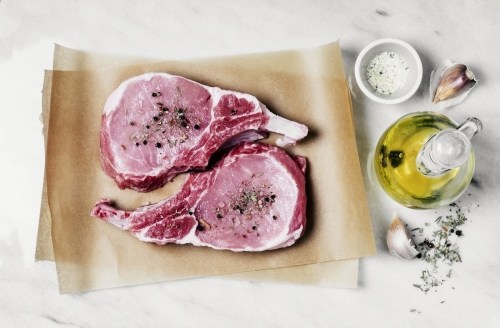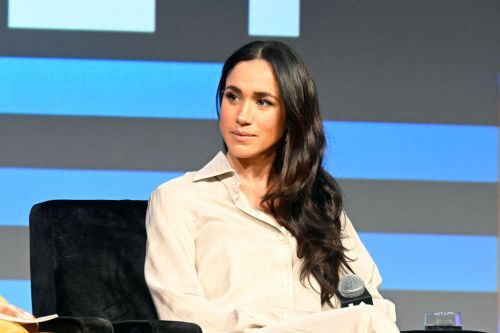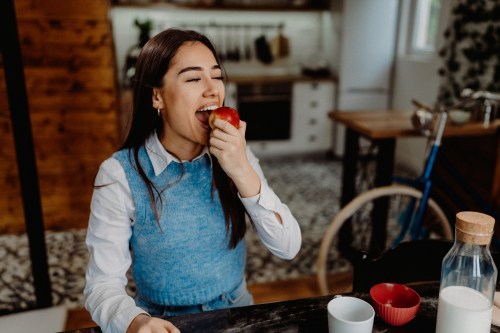What has four letters, helps deliver oxygen to your body, and is a main component of Popeye’s favorite food? If you guessed iron, you’re 100 percent right.
Iron perhaps hasn’t been given as much press time as other, trendier nutrients like collagen and turmeric. Along with calcium and other OG minerals, it’s actually one of the most important components of the human diet. Yet roughly 10 million people aren’t getting enough iron in their lives, which can cause some serious health complications (more on those in a sec).
However, before you decide to start loading up on iron supplements, it’s important to more fully understand iron benefits and how the mineral works in your body. (Because, spoiler alert: Not everyone is meant to take an iron supplement.) Here’s what an expert has to say on the subject.
What are the main iron benefits?
Iron is an essential mineral our bodies need to function. It’s used to make hemoglobin, which carries oxygen via your red blood cells through the body. “Think of hemoglobin as breathing life into your tissues and organs,” says Robin Foroutan, RDN, an integrative nutritionist at the Morrison Center in New York and spokesperson for the Academy of Nutrition and Dietetics. Thus iron is crucial for keeping your body healthy and functioning in top form.
It’s also key for proper brain function. It helps create serotonin, the chemical that helps regulate your mood. Because the brain needs a constant supply of oxygen, having steady iron levels is pretty crucial for cognitive function, too. And iron deficiency has been associated with cognitive impairment in some studies.
Is it hard to get enough iron from food?
Usually, no. For the most part, all the iron you need (18 mg for women per day) comes from your diet. “There are two types of iron that come from food: heme and non-heme,” Foroutan explains. Heme iron foods come from animal products like red meat, oysters, and fish. Plant-based foods like seeds, beans, lentils, dark chocolate, and leafy greens contain non-heme iron.
The catch? Components in these vegetarian sources actually block the absorption of iron, although it can help if you combine them with foods high in vitamin C. (They’re also just not as easily absorbed by the body in general.) For this reason, it’s common for vegans and vegetarians to be iron deficient.
“Iron deficiency anemia is not a joke,” Foroutan says. “It can make you feel really bad.” Think unshakeable fatigue, weakness, cold hands and feet, shortness of breath, and other symptoms that make you go bleh. Your body is generally pretty good at recycling iron; you generally only lose it if you’re bleeding. However some people are more at-risk of having iron deficiency anemia, including people who don’t eat meat. That’s why most experts say vegetarians should eat twice as much iron per day as meat eaters to ensure they’re meeting their proper levels. If you’re pregnant, you also need even more iron (27 mg per day) to make more blood for your baby.
What about iron supplements?
Iron supplements certainly can be helpful to boost your iron levels if you’re deficient. But if you’re not deficient, steer clear. “Iron is definitely not a ‘oh, what the heck, I’ll just take it’ kind of supplement,” Foroutan says. “If you’re low in iron, you might be low in a lot of other things too.” The only way to know you’re for sure dealing with an iron deficiency (since obviously other health problems can manifest as exhaustion and weakness) is through a blood test. Your doctor will examine the size and color of your blood cells, as well as iron, ferritin, and hemoglobin levels, before recommending supplements. Or they just might suggest to eat more high-iron foods. It’s not a one-size-fits-all option.
If you go à la carte with extra iron supplements without your doctor’s OK, you could put yourself at risk. Unsafe levels of iron (more than 20 mg per kilogram of bodyweight, per the NIH) can cause an upset stomach, abdominal pain, and vomiting, while rarer and more severe cases can interfere with zinc absorption and potentially even cause organ failure and death.
Now that the scary part is out of the way: If your doc does find you to be iron deficient and suggests you take a supplement, work with them to find the right one for you. “They can help you hone in on which ones will give the greatest benefit, and guide you towards the high quality ones,” Foroutan says. She suggests looking for iron glycinate, which includes an amino acid that also helps produce hemoglobin and is more easily absorbed by the body. “The best supplements also include co-factors, which are other vitamins that help iron get absorbed and help your body make more red blood cells,” Foroutan says. Things like vitamin C, folate, and B12 pack a beneficial one-two punch.
The good news is, energy levels can improve as quick as a month or two of taking iron supplements. “Your tissues and organs are receiving oxygen it was being starved of, so that can make a big difference,” Foroutan says. Sounds literally rejuvenating.
Curious about more popular supplement benefits? Here’s the lowdown on selenium and omega-3s.
Sign Up for Our Daily Newsletter
Get all the latest in wellness, trends, food, fitness, beauty, and more delivered right to your inbox.
Got it, you've been added to our email list.










